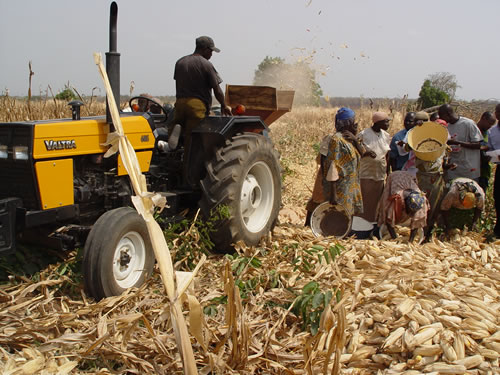Mr Macpherson Fred-Ileogben of the Nigerian Export Promotion Council (NEPC) has said that value addition and organic farming are possible strategies that can boost the export of Nigeria’s non-oil products.
Fred-Ileogben, who is NEPC’s Trade Promotion Advisor and Export Assistant in Benin, made the statement in an interview with the News Agency of Nigeria (NAN) in Benin on Wednesday.
He said that these strategies were “necessary to enable Nigerian exporters know how to make their products acceptable in the foreign markets and earn more value for them”.
According to him, the government is looking at diversifying the country’s resource generation from oil to non-oil products.
“The government is also promoting the exportation of non-oil products because it is a way to boost foreign exchange earnings, conserve the foreign reserve and create jobs.
“So, exporters and would-be exporters should key into this policy and generate more foreign exchange for the country and in the same vein strengthen the valve of the naira,” he explained.
The NEPC trade advisor said that value chain addition was, therefore, imperative to making Nigeria’s non-oil exports more competitive and acceptable in the international market.
“On the average, our products are up to standard but we have to do more so that they can compete well at the international market.
“The country needs to do more in the aspect of infrastructure, such as improving power, processing facilities, access roads and rail transportation to ease conversion of raw materials into semi-finished or finished goods for exportation.
“This is because most semi -finished or finished products attract more value at the international market than products in their raw forms.
“If you are taking anything outside the country, we expect that the standard and packaging should be acceptable abroad.
“If the standard is good, it will earn you good value for your product but if otherwise, it could be rejected.
“And worse still, the exporter will bear the cost of returning it back to the country,” he said.
He also advised farmers to adopt the emerging international trend in organic farming.
According to him, this involves the concentration more on the use of organic materials, such as farm manures, crop rotation and planting on the right soil and at the right time.
“We are encouraging farmers to shift from subsistence farming to commercial farming for purposes of exportation.
“As they do so, they should also do more of organic farming as the prolong use of inorganic fertilisers has adverse health effects on both the plants and humans “, he said.
He, however, noted that the major challenges confronting small and medium scale exporters in some parts of the country were the lack of access to finance and lack access to international market.



Leave a Reply